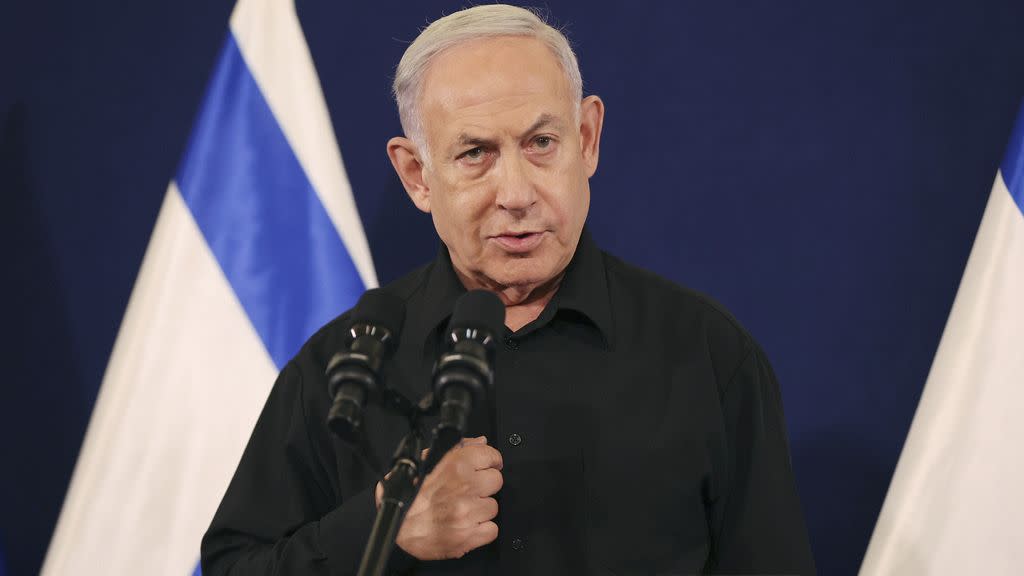Israel accepts EU invite to discuss bilateral relations, but with conditions

Israel has accepted in principle to attend a key council on its bilateral relations with the European Union, but has dismissed top diplomat Josep Borrell’s suggestion the meeting should be convened specifically to address the situation in Gaza, an Israeli official told Euronews.
However, the official reply letter by Israel to the EU seen by Euronews, does not refer to any specific agenda discussions nor a period or a date of when the association could take place.
Borrell announced in late May he would convene Israel “as soon as possible” to discuss “the situation in Gaza” and the “respect of human rights” to which Israel is bound under the so-called Association Agreement of 2000, which lays out the legal basis for trade and cooperation between the EU and Israel.
He also said the meeting would provide the opportunity to confront Netanyahu's government about its compliance with the recent ruling of the International Court of Justice (ICJ), which ordered Israel to halt its intended military offensive in the southern city of Rafah. On June 5, Borrell officially extended the invitation to Israeli foreign minister Israel Katz.
Israel replied on 20 June with a letter by the Israeli ambassador to the EU and NATO Haim Regev, according to the document seen by Euronews, saying that “there exists both a need and an opportunity to convene a full, regular meeting of the Association Council”.
However, “the agenda for this meeting should be mutually agreed upon by both parties. Foreign Minister Katz proposes that the discussion on the content and timing of the Association Council will be initiated through the established diplomatic channels,” the document states.
The letter makes no reference to a possible date or point of agenda discussion.
An Israeli official however told Euronews that although the country has agreed in principle to attend such a meeting, it rejects Borrell’s notion that the Council should be an “ad hoc” one in response to the humanitarian crisis gripping Gaza.
The source said that any Association Council must be a “normal one” in line with previous occurrences, and that this format would allow parties to discuss the war in Gaza and compliance with human rights.
Israel has rejected any attempts to use the Council as “leverage” to bring the long-standing conflict between Israel and the Palestinians to the table as they say the Association Council would not be the right forum.
Bloc struggles to up pressure on Israel
It comes days after Israel Katz - the outspoken foreign minister - claimed on social media platform X he had struck an agreement with his Hungarian counterpart Péter Szijjártó to hold the Association Council during Budapest’s six-month rotating presidency of the Council of the EU, which kicks off in July.
But the Council presidency has no power to define the date of the Council and a limited role in the discussions as the EU delegation would be represented by the bloc’s top diplomat, a post currently held by Josep Borrell.
An EU official criticised what he described as a "huge misunderstanding in some quarters of the Israeli government" about what an Association Council is and by whom it is chaired, insisting that it is only the High Representative at the table and that it's "completely irrelevant" who holds the rotating presidency.
Hungary is one of Israel’s staunchest European allies and has consistently held back EU decisions in response to the war in Gaza - including sanctions on violent Israeli settlers and an appeal on Israel not to strike Rafah - by wielding its veto power.
Katz has also previously got himself into hot diplomatic waters with his provocative responses to the decision taken by a handful of EU countries to recognise the state of Palestine.
The decision to convene the Council came months after Ireland and Spain first pressed on the EU executive to renegotiate its Association Agreement with Israel.
Article 2 of that agreement, struck in 2000, stipulates that the deal is "based on respect for human rights and democratic principles."
The EU is Israel's main trading partner, accounting for just under a third of all commerce, meaning the Agreement is seen as a powerful tool for the bloc to exert pressure on Netanyahu's war cabinet to refrain from its offensive in the war-torn Gaza Strip.


